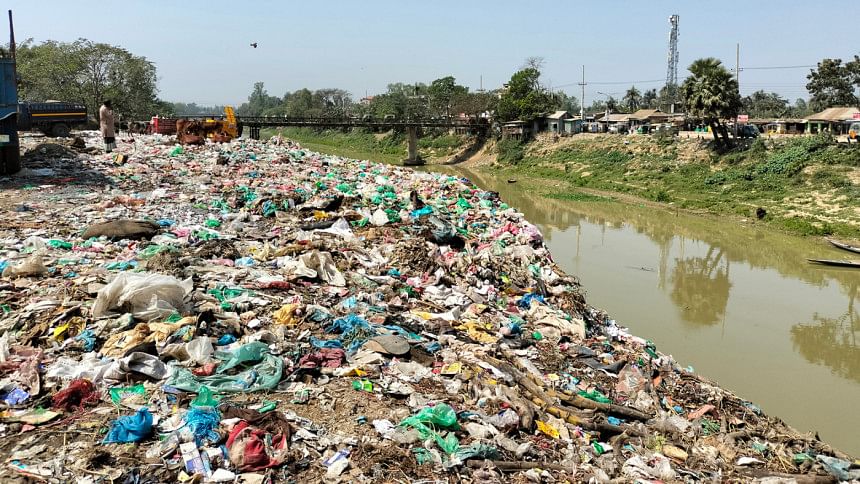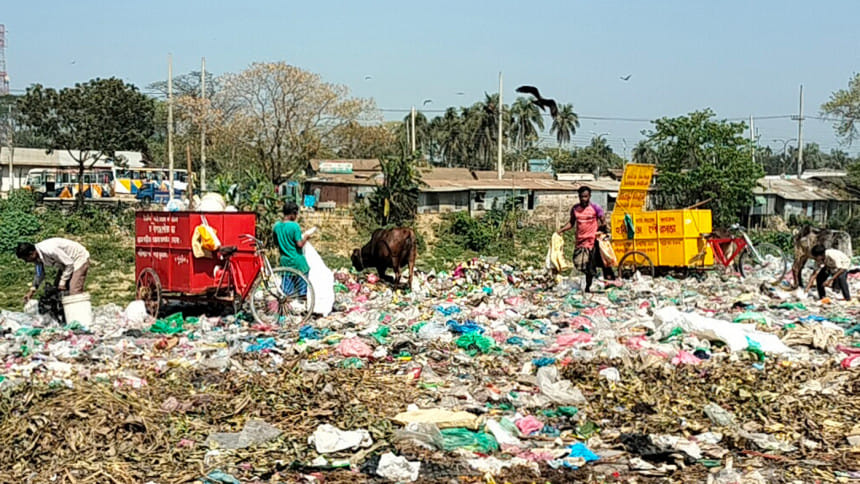Khowai: a river or dumpster?

Abdus Salek, a 62-year-old resident of Habiganj town's Khowai Mukh area, used to spend his childhood fishing in the Khowai river. However, he no longer visits its banks as it has now turned into a dumping ground for household and commercial waste.
"Four decades have passed since authorities took action to protect this river. The waterbody changed in a lot of ways during this time. Encroachments now endanger the river's existence. Khowai, which was once a natural treasury for the locals, has now become a social concern for the town's residents," said Tofazzal Sohel, the river's waterkeeper.
The pollution in Khowai not only affects its marine life but also degrades the living condition of the town's residents.
Saiful Islam, a master's student of Vrindavan Government College and resident of the town, said, "I used to bathe in this river about a decade ago. Now, because of the stench of rotting waste dumped on the banks, we can't even seek refuge from the smell even while staying indoors, keeping the doors and windows closed."
The townspeople are not just exposed to waterborne diseases, mosquito infestation and other pests are also worsening living conditions. We have been trying to save the river for a long time, but it seems that the authorities have turned a blind eye to this issue.
Husna, a house help in Shyamoli area, was found dumping household waste near the river. Asked why she was polluting the river, Husna said, "Not just me, everyone throws waste here, even the municipality's garbage workers."
Most of the canals are blocked with waste dumped by locals or garbage collectors, while sewerage drains have also been connected to the river. Disposal of untreated waste further worsens the river's water quality, said activists.
"The townspeople are not just exposed to waterborne diseases, mosquito infestation and other pests are also worsening living conditions. We have been trying to save the river for a long time, but it seems that the authorities have turned a blind eye to this issue," said Tahmina Begum Gini, vice president of Bangladesh Poribesh Andolon's Habiganj unit.

The municipality's conservancy workers and locals are reportedly often seen dumping waste collected from the town into the river, despite having an allotted dumping ground located about four kilometres away from the main town.
Contacted, Habiganj Municipality Mayor Ataur Rahman Selim said, "I have strictly forbidden the locals and conservancy workers from dumping waste by the river. However, there are some who are still not following my orders. The garbage in Khowai Mukh will be removed very soon."

 For all latest news, follow The Daily Star's Google News channel.
For all latest news, follow The Daily Star's Google News channel. 



Comments